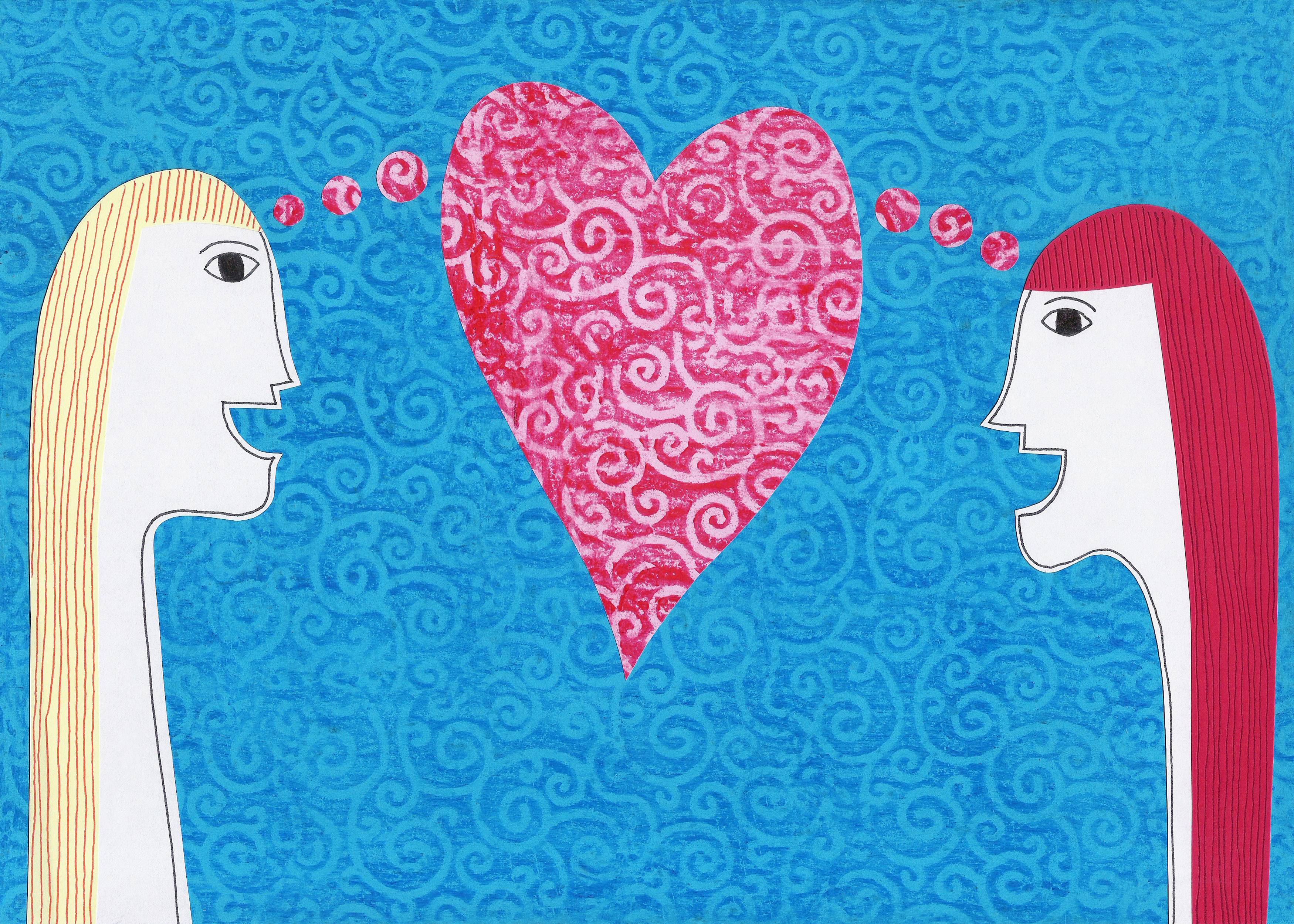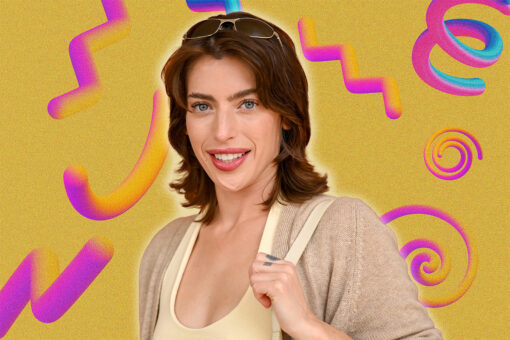Judaism, as I’ve come to know it, is about questioning. It’s about speaking up when you don’t understand, challenging traditions, and, most of all, asking why.
This was the norm for me: I was raised by two secular Jewish parents in a New Jersey suburb with a prominent Jewish population. I attended Hebrew school, had a bat mitzvah, lit Shabbat candles, went on Birthright. Jewish culture, thought, and ritual was and still is important to me. But once I got to college, I knew observing Judaism — and how I did so — was up to me.
Another accepted norm for me was the Nice Jewish Boy, two of whom I dated in high school. They knew the rules of kashrut but loved trayf. They’d been bar mitzvah’d but hadn’t been to synagogue since. They couldn’t say the blessings over different food groups, but knew all the best Yiddish words.
So, when I started dating Lucy* our senior year of college, I had a lot of questions. I accepted that some answers were out of reach at that time, but I took what I could.
Lucy’s from the Midwest. She was raised Catholic. She attended church on campus, and often told me about Mother Rachel’s Sunday sermons. She told me how growing up she’d grappled with Catholicism, how she’d learned that if you were gay, you were going to hell. She much preferred the warm, Episcopalian community at our college.
Judaism and Catholicism colored our relationship. I called her shayna, Yiddish for “beautiful”; she called me mel, Latin for “honey.” For one of our first dates I invited her to watch my favorite (very Jewish) movie, A Serious Man. Months into our relationship she invited me to my very first Easter. For my birthday, she took me on a bagels-and-lox picnic, even though she didn’t like fish.
Not only was religion important to her; what’s more, she was not self-conscious about participating in organized religion on our largely non-religious campus. Many of her friends (including a non-binary person and two other queer women) were from Canterbury, the Episcopalian campus ministry. I had plenty of friends who identified as culturally Jewish, but few of them joined me at Hillel on Rosh Hashanah and Yom Kippur.
As in any relationship, we asked each other many questions. We quickly moved past, “What’s your ideal date?” onto, “Why do some people believe the Jews killed Jesus?” and, “What is a cantor?” and, “Why is Ash Wednesday called Ash Wednesday?” and, “What’s Passover about?”
We discussed the concepts of heaven and hell, and tikkun olam, and our ideas of God. Virgin Mary. Mezzuzot. The wafer that represents Christ’s body. Rugelach. We explained the sacred history behind our names. And yes, we discussed with uneasy curiosity what our religions (and parents, and friends) had to say about a woman laying with another woman, but there were always far more interesting questions to explore.
Honestly, I can’t recall any fights we had, or any times that we considered calling it off, because of religious difference. I can’t say for sure that conflict would have never existed. For example, if we had considered marriage: Would there be a chuppah? Would one of us break the glass? Would we be married by a priest in a church?
Religion wasn’t the center of our relationship, but since it was important to each of us, it became important to the relationship. I loved explaining my customs to her, and listening to her explain hers. I also loved that she loved her religion, and that made me love mine more.
The Nice Jewish Boys and I shared more culturally. We, in a sense, spoke the same language. We had a common history, something we knew about the other before it was even spoken aloud. And that’s a good thing. But with Lucy, we shared something else: a degree of comfort and wonder in the religions we’d inherited, as well as a tense curiosity. We explored our many questions together.
(Also, I want to be clear: My choice to date her wasn’t a rebellious phase, nor was it out of curiosity, nor because I was on the brink of abandoning men or Judaism. I dated her because I liked her and she liked me back.)
We broke up after graduation. I was going to work and live abroad, and admitted to myself that I couldn’t see still being in the relationship a year later, when I was planning to be back in the States long-term.
We both went on to volunteer positions serving our respective religious communities. One might look at that as us moving in polar opposite directions. I think it speaks to how similar we were in that regard, how much religion and community meant to us.
Essentially, thanks to my time with Lucy, I came to realize how lucky I feel to be Jewish. Not as opposed to Catholic or any other religion, but just how fulfilled this connection to my religion makes me feel. Explaining my traditions to someone else reinforced to me how special I think they are. I’d grown up around so many people who took Judaism for granted. Lucy was just beginning to learn about it, so as we talked about our respective religions, I remembered all over again why I loved everything I was telling her about.
Naturally I’d gained more questions than answers from this relationship. There’s no resolution, no “definitely yes” or “never again.” I left feeling more committed to my Judaism. Perhaps the thing that made me feel like a better Jew is having questioned everything.
*Name has been changed



